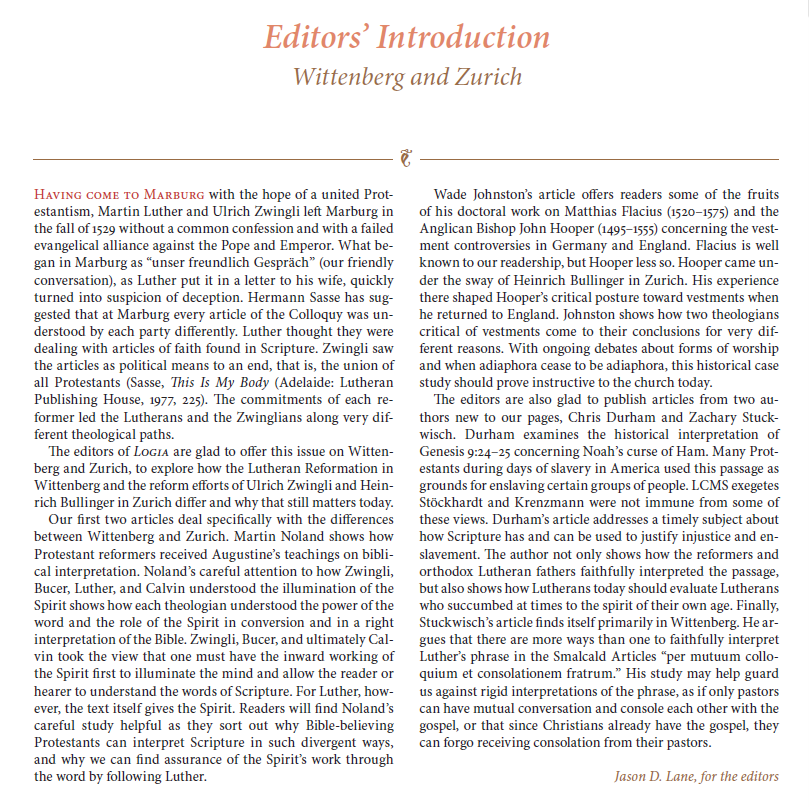Upcoming Themes
LOGIA is published quarterly (Epiphany, Eastertide, Holy Trinity, and Reformation).
35:1 (Epiphany 2026) — Wittenberg & Zurich — this is our current issue - purchase here.
35:2 (Eastertide 2026) — The Psalms — scheduled for publication in April 2026
35:3 (Holy Trinity 2026) — Two Kingdoms, Three Estates — scheduled for publication in July 2026
35:4 (Reformation 2026) — Anfechtung and Depression — scheduled for publication in October 2026
36:1 (Epiphany 2027) — Spiritual Disciplines — scheduled for publication in January 2027

